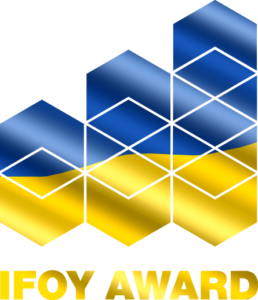
In light of the actions taking place in eastern Europe, the IFOY organisation is… Read more »

In light of the actions taking place in eastern Europe, the IFOY organisation is… Read more »

Companies seeking to trade with Russia and the CIS countries that are currently deterred… Read more »
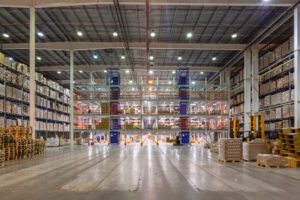
Itella Russia, one of the leading contract and transportation service providers in the Russian… Read more »
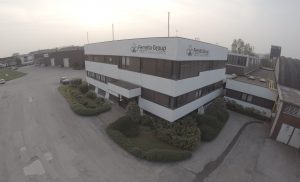
The Ferretto Group is to supply what it says is the first automatic storage… Read more »

AGV specialist B2A Technology Group, formed last year from the merger between Alstef and… Read more »
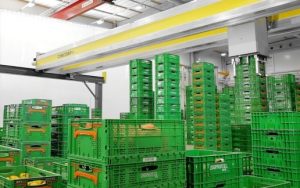
In response to growing demand for increased speed in fresh produce logistics, leading automation… Read more »
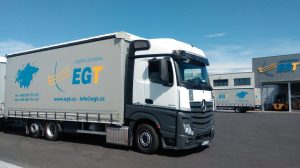
Europe/Asia transport specialist EGT Express is to launch transport operations, including consolidation services and… Read more »

Hiab, part of Cargotec, has secured an order for close to 40 LOGLIFT F96ST… Read more »
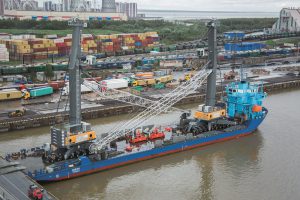
Liebherr Maritime Cranes has delivered a new mobile harbour crane, type LHM 550, to… Read more »
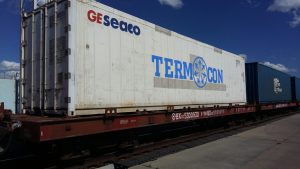
JSC RZD Logistics began testing the new technology of railway transportation of perishable goods… Read more »
The Venice Port Authority, the Lübeck Port Authority (Lübecker Hafen-Gesellschaft – LHG) and the… Read more »

Proper guidance by a specialist freight forwarding company can be invaluable in removing the… Read more »

Beumer Group is to design, manufacture and install an innovative Rota-Sorter at DPD Russia’s… Read more »
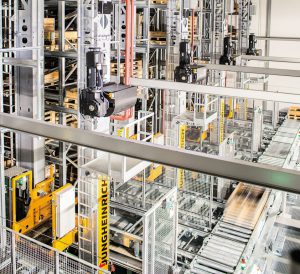
Jungheinrich is to provide the handling systems for IKEA Russias new distribution centre. A… Read more »
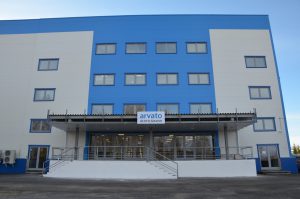
A new logistics facility has been built at Yaroslavl, about 250km north-east of Moscow.… Read more »
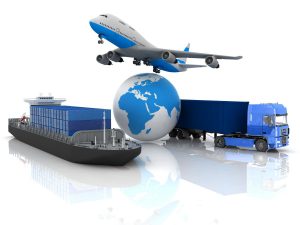
Despite a significant general decline in the number of containers handled in Russian ports,… Read more »
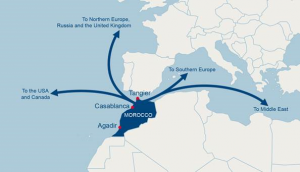
CMA CGM deploys 5 maritime services to meet increased needs due to Moroccan citrus… Read more »
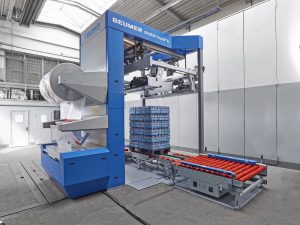
CeMAT Russia: As a single-source provider, BEUMER Group presents innovative conveying, loading, palletising and… Read more »
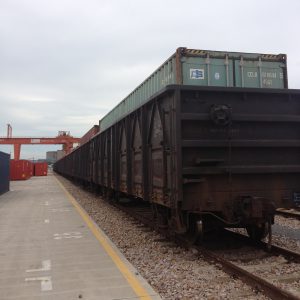
JSC Russian Railways Logistics took 50% stake in Latvian rail freight company SIA «Liepajas… Read more »
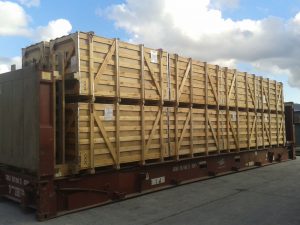
Transcontainer LLC and RUSCON, two divisions of the GCS Group, are among the many… Read more »

The shortage of professional truck drivers in Europe has been a growing concern, threatening… Read more »

In May 2023, data obtained by Pinsent Masons revealed that 127 UK companies have… Read more »
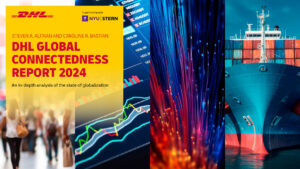
DHL and New York University’s Stern School of Business today released the new DHL… Read more »
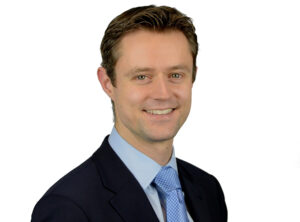
Global supply chains have largely recovered from the shocks experienced by the onset of… Read more »

Intralogistics specialist Linde Material Handling is realigning its brand management and sales and service… Read more »
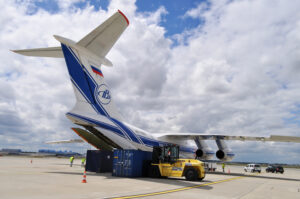
As new supply chain due diligence regulations – such as the EU’s Corporate Social… Read more »
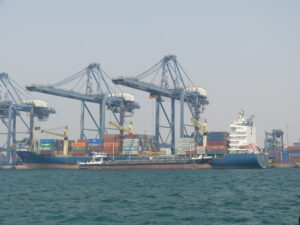
Shipping transports around 90% of world trade onboard different vessels so maritime safety is… Read more »
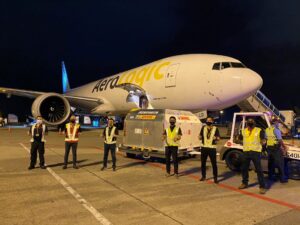
Where is the air cargo market headed? David Priestman met Mr Lim Ching Kiat,… Read more »

Resilinc, a global leader in supply chain mapping and risk monitoring, is sharing exclusive… Read more »
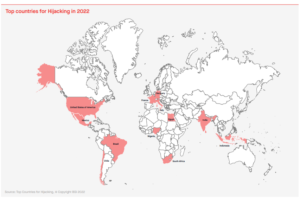
Today, BSI, the business improvement and standards company and leading global provider of supply… Read more »
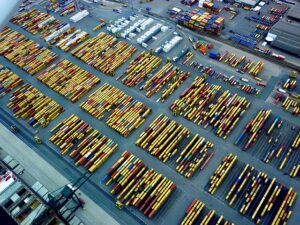
2022 was a year of challenges for Port of Antwerp-Bruges. Geopolitical tensions, the energy… Read more »
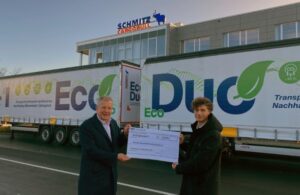
With its internal pre-Christmas initiative ‘Give the gift of solidarity’, Schmitz Cargobull employees have… Read more »

Boxes of Hope, a humanitarian aid charity that was established to send food, clothing,… Read more »

JJX Logistics has added a striking new IVECO S-WAY 6×2 (AS260S46Y/P) rigid to its… Read more »

David Priestman met with HERE Technologies at the Gartner Supply Chain Xpo in London… Read more »
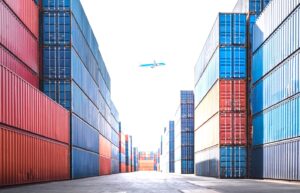
European businesses are looking towards Romania, Turkey and Morocco as alternatives to production in… Read more »

Steve Beda (pictured), executive vice president of customer solutions, Trax Technologies, explores the importance… Read more »

John Dye (pictured), President of the Timber Packaging & Pallet Association (TIMCON) has commended… Read more »
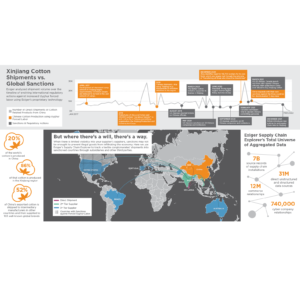
Exiger, a global leader in AI-powered supply chain and third-party risk management solutions, has… Read more »

There are early signs of wood availability returning to established seasonal patterns, according to… Read more »

The European Federation of Wooden Pallet & Packaging Manufacturers (FEFPEB) has expressed its deep… Read more »

OCI, ranked as the third-fastest-growing company in Europe, has developed a powerful new way… Read more »
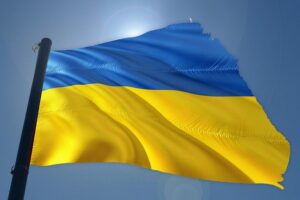
ParcelHero says ‘Putin’s War’ is already having an impact on costs, supply chains and… Read more »
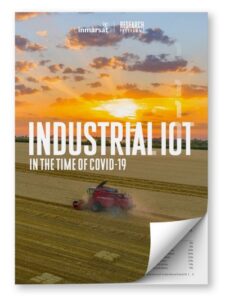
Research by Inmarsat, a world leader in global, mobile satellite communications, reveals relatively few… Read more »
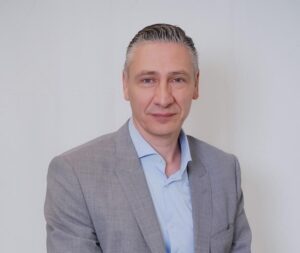
In an open letter to supply chain leaders, Stefan Van Doorslaer (pictured), President of… Read more »
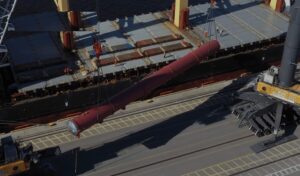
Eleven members of the Danir 19 team from its offices in Germany, Latvia, Russia,… Read more »